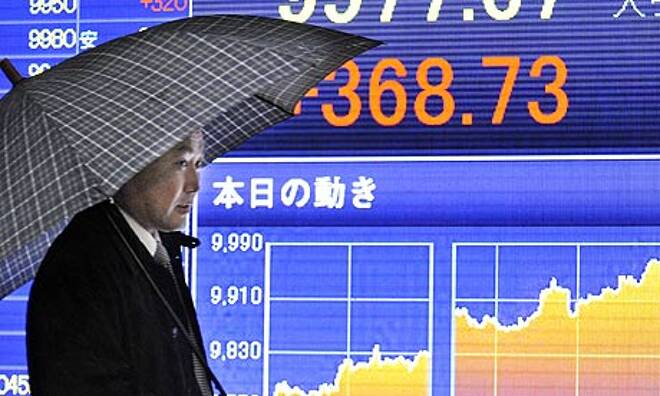Advertisement
Advertisement
Geopolitical Concerns Heat Up Demand for Japanese Yen
By:
The price action in the Forex markets last week was driven primarily by two events: geopolitical concerns and comments from U.S. President Donald Trump.
The price action in the Forex markets last week was driven primarily by two events: geopolitical concerns and comments from U.S. President Donald Trump.
Early in the week, the U.S. Dollar weakened as flight-to-safety buying drove investors out of higher-yielding assets and into so-called safer assets.
After consolidating for a few days, the dollar was hit again by dovish comments from President Trump.
For the week, the June U.S. Dollar Index futures contract finished at 100.463, down 0.654 or -0.65%.
Throughout the week, the driving force behind the weaker U.S. Dollar was possible U.S. military action in Syria and North Korea. Investors were reacting to the possibility of a show of force against North Korea in response to its weapons tests grew after U.S. missile strikes against Syria the week before in retaliation for a chemical weapons attack on civilians.
Japanese Yen
The Dollar/Yen also broke sharply after a key technical level on the longer-term chart was taken out convincingly. The USD/JPY settled at 108.606, down 2.434 or -2.19%.
The major currencies also reacted to the flow of money out of U.S. equity markets. The major U.S. stock indices posted their second straight weekly decline in a holiday-shortened week. Investors also continued to move money into U.S. Treasury Bonds. This also helped make the U.S. Dollar a less-attractive investment.
Additionally, increased military activity by the U.S. with a bombing that targeted ISIS in Afghanistan also created some uneasiness in the markets, making the safe-haven Yen a more favorable asset.
The dollar also plunged in reaction to comments from Trump. In an interview with The Wall Street Journal, Trump said that the greenback is “getting too strong”. He also said it would be nice if interest rates remained low.
Australian Dollar
Australian Dollar traders were able to shrug off the geopolitical events while shifting their focus on domestic data which showed more jobs were created in Australia in March. According to the government, a total of 60,900 jobs were added to the economy last month, compared to February’s 2,800. The number was also much higher than the 20,000 estimate.
Also helping to boost the Aussie was upbeat Chinese trade data. This was supportive because China is Australia’s major trading partner. China’s exports rose at the fastest pace in a little more than two years in March, climbing 16.4 percent from a year earlier in a further sign that global demand is improving, the customs office reported on Thursday. China’s import growth remained strong at 20.3 percent
Analysts had expected March exports to have increased by 3.2 percent from a year earlier, a rebound from a 1.3 percent drop in February.
In the absence of fresh economic data, New Zealand Dollar investors had no choice but to rally in reaction to the sharp drop in the U.S. Dollar and the positive news from China.
About the Author
James Hyerczykauthor
James Hyerczyk is a U.S. based seasoned technical analyst and educator with over 40 years of experience in market analysis and trading, specializing in chart patterns and price movement. He is the author of two books on technical analysis and has a background in both futures and stock markets.
Advertisement
